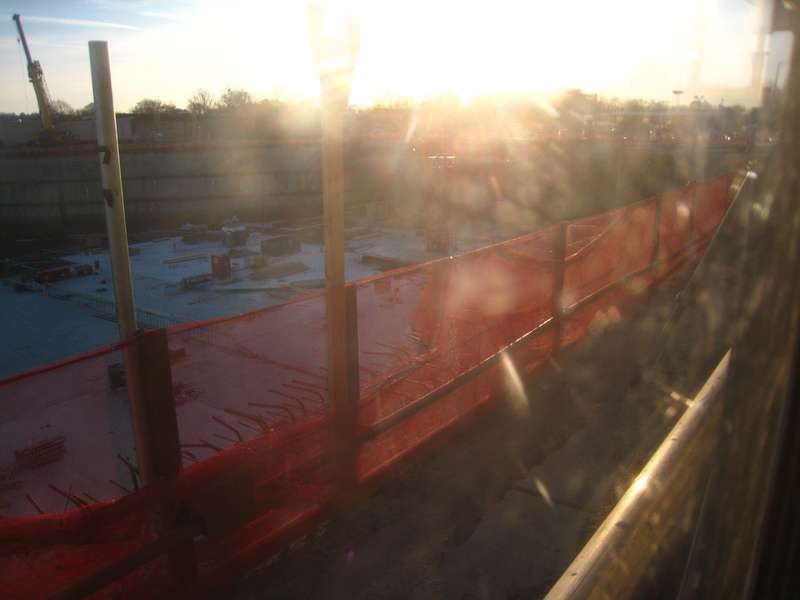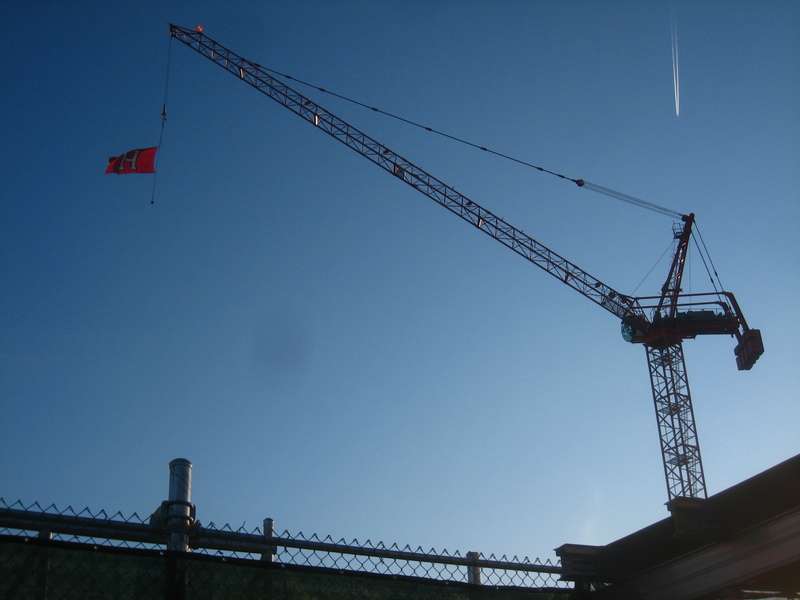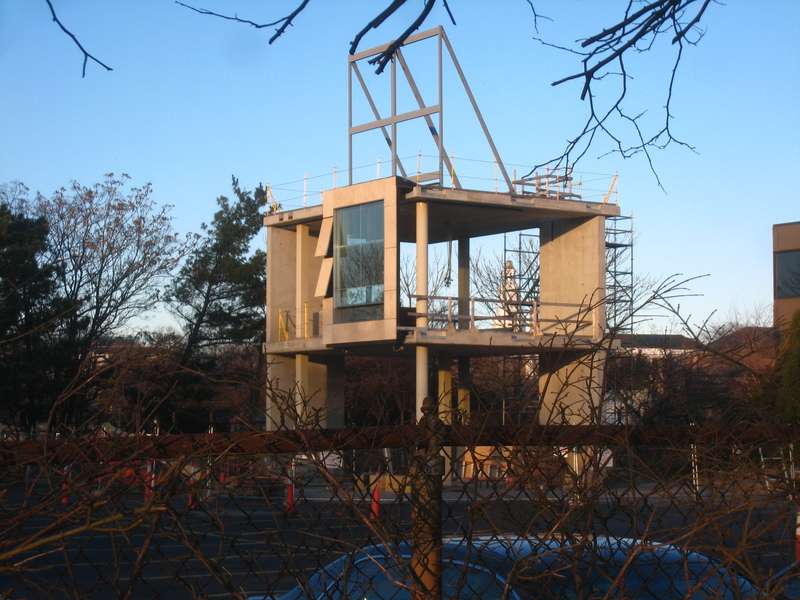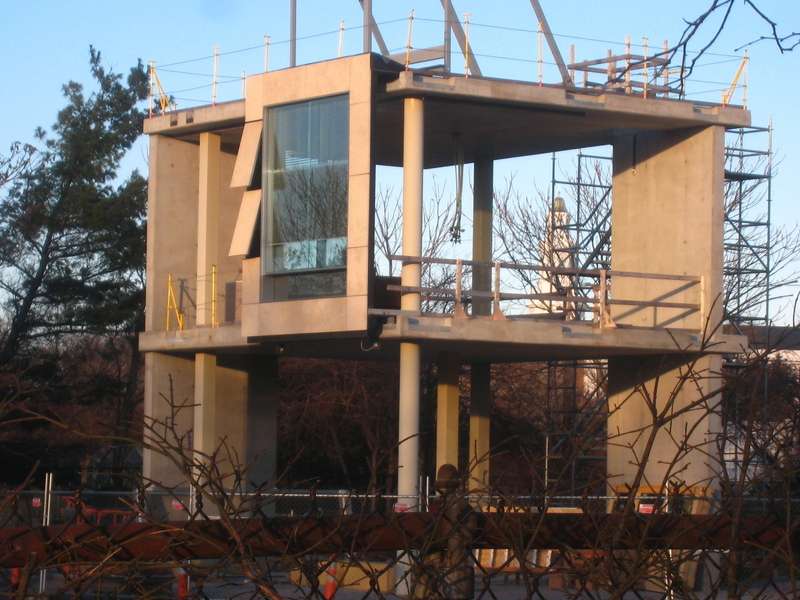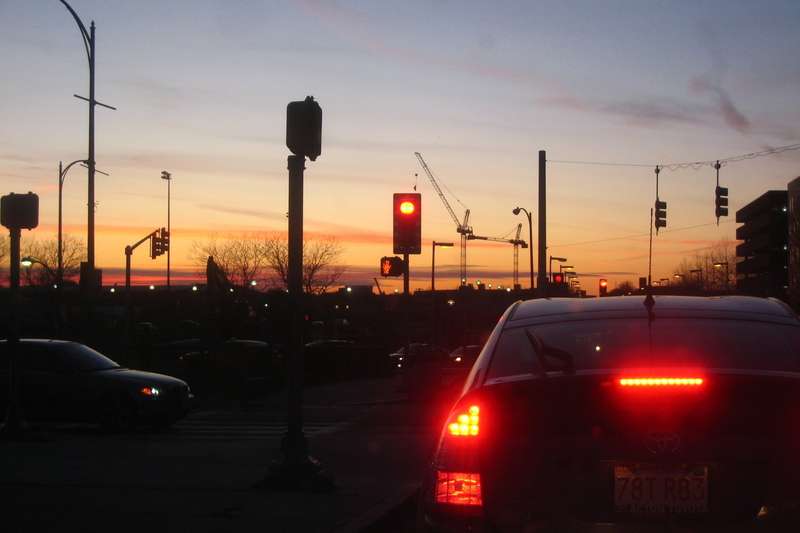You are using an out of date browser. It may not display this or other websites correctly.
You should upgrade or use an alternative browser.
You should upgrade or use an alternative browser.
Harvard - Allston Campus
- Thread starter statler
- Start date
stellarfun
Senior Member
- Joined
- Dec 28, 2006
- Messages
- 5,711
- Reaction score
- 1,544
If you google Harvard lions Allston, the roads lead to archBoston, and kz's post:
As has been reported, they found about a dozen [granite] lions, but Kenny said only "four or five" of them were restorable, the others being too fragmented or missing too many parts altogether to be worth doing anything with. I asked him if he had any insights into where they could've came from, and all he could do was shrug and say "it's a mystery."
Boston02124
Senior Member
- Joined
- Sep 6, 2007
- Messages
- 6,893
- Reaction score
- 6,639
today driving to storrow drive
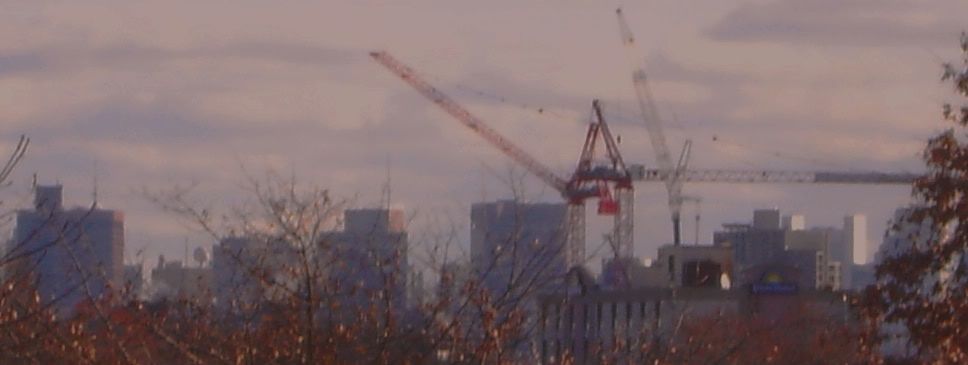
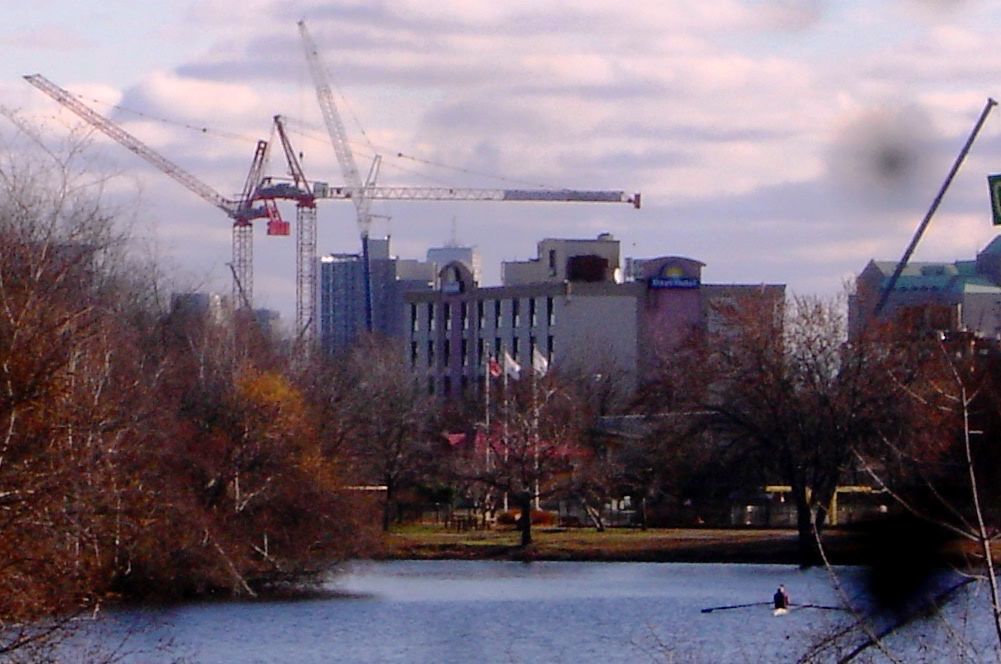
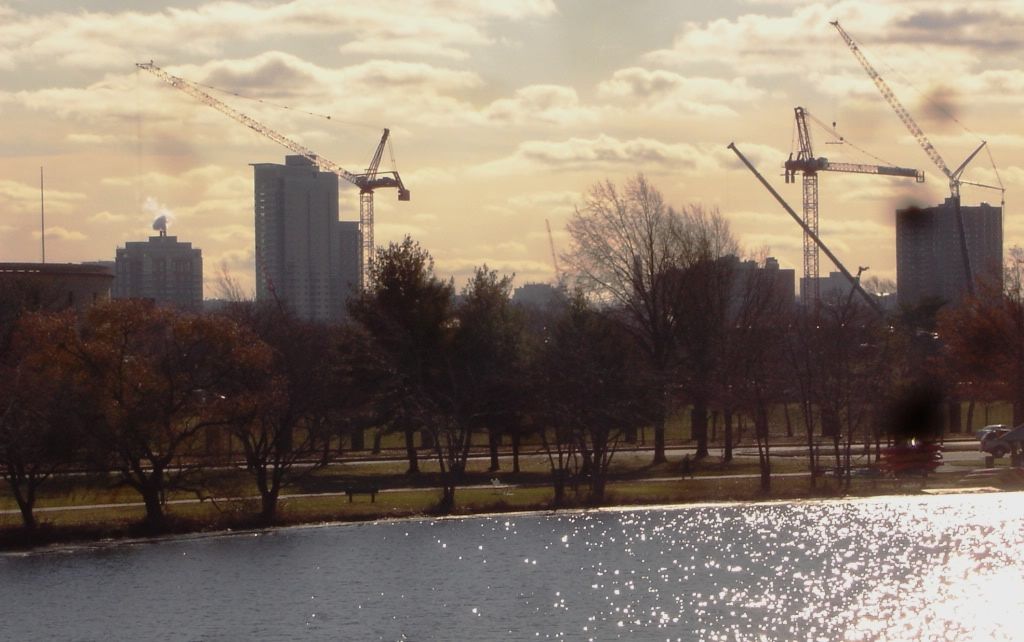



BarbaricManchurian
Senior Member
- Joined
- Mar 12, 2007
- Messages
- 1,067
- Reaction score
- 65
^^wow, the BU dorm looks so tall in the last pic. Now via storrow, it feels like you are entering the CBD a little bit sooner.
BarbaricManchurian
Senior Member
- Joined
- Mar 12, 2007
- Messages
- 1,067
- Reaction score
- 65
^^Central Business District. In most cities, it would be the downtown but Boston's CBD is bigger than just downtown  .
.
Why is it so preferable? And why not retail on both Harvard St. and Western Ave.?Harvard would devote to retail / commercial along N. Harvard St. between Barry's Corner and Harvard Sq. A solid idea, and much more preferable than the retail / commercial frontage flanking Western Ave eastward from Barry's Corner to Cambridge that some had proposed earlier.
Sounds like Harvard is treating the community with contempt. Here?s a possible reason why:"Isn't there a process so we aren't coming here every Wednesday night to argue about plans with a bunch of people who are paid a lot more than we are?" asked Tom Lally of Alcott Street. "We need someone to help us understand this."
Laughable nonsense. As long as the community can?t come up with anything more relevant than these red herrings, it deserves smiles of derision. Traffic can be controlled and engineered into a desired configuration, and it?s a universal fact of urban life. The proposed buildings aren?t tall --and even if they were: since shadows are cast toward the north, Harvard?s buildings will mostly cast shadows on other Harvard buildings. And finally, shadows are everywhere and often welcome.Traffic and shadows voiced as concerns
Might as well complain that there will be rain.
Such arguments do nothing but underline the community?s intellectual bankruptcy; there are no ideas in the bank account, no insight to offer, not really even legitimate grievances. There?s plenty wrong with Harvard?s plan, but shadows and traffic ain?t it.
Where are the counterproposals? Where are the substantive ideas? Is it any wonder such impotence gives rise to barely-concealed contempt from Harvard?
If these are the community?s complaints accurately reported, no wonder they?re dismissed. The first two complaints are fluff; and the community has itself to blame if it?s outgunned. It needs to invest in a gun and some ammunition or step aside. "Shadows and traffic" is not ammunition.As Harvard's architects last month unveiled the university's revised master plans for what are now acres of concrete, cars, and industrial buildings in North Allston, neighbors grumbled about traffic, shadows, and being totally outgunned.
Voila ? here?s an opportunity to acquire the first rounds of ammo. It?s not the Urban Ring that needs the underground train, it?s the Community, man. Who wants to be stuck on a shuttle bus in the spaghetti-wilds of the Allston interchange, relying on traffic conditions to make an appointment or get to work?The plans include contingencies for an underground train or bus tunnel, in case the Urban Ring should need such a spur to Harvard Station?
Bag the shuttle bus; build the subway. As part of the first phase, the Community tells Harvard they want a five-station subway line that connects up Harvard?s far flung empire internally and simultaneously links with the MBTA.
The Stations: 1. Harvard Square (connection to Red Line); 2. Allston Campus/Western Avenue (NOT Barry?s Corner, but the middle of things: Western Avenue at ineptly-named Cattle Drive); 3. Boston University/Nickerson Field (at Agganis Way, connection to Commonwealth Avenue Green Line); 4. Longwood/Harvard Medical (once again, in the symbolic heart, at Avenue Louis Pasteur); 5. Roxbury Crossing (connection to Orange Line). This line could serve as the first phase of the Urban Ring.
Pretty pictures for mouth-breathers.Slides presented showed tree-lined boulevards with bike lanes, pedestrian paths, apartments, classrooms, offices, stores and restaurants, parks, a farm, and more.
When you can?t think of anything else, ask for more park. And they want to be taken seriously?In response to neighborhood requests, the plans include more points for neighbors to access the campus, more public open space, and more connections to the river. For instance, planners added a park that runs from the back of the branch library at North Harvard Street all the way to Soldiers Field Road at the eastern end of Western Avenue.
A flip-flop on this one. I can see both sides.On the other hand, planners rejected residents' suggestion to depress Soldiers Field, arguing that drivers would be deprived of spectacular river views of the Cambridge side of Harvard's campus.
Truly a stinking idea.For their part, neighbors rejected Harvard planners' proposal to add at-grade pedestrian crossings of Soldiers Field Road as unsafe and likely to divert traffic back onto residential streets.
This article was published November 2, 2008. If the plan was put on ice for a year, how can it be ready in early 2009? Should we be holding our breath?The university put its master plan on ice for more than a year while it worked on plans for the Allston Science Complex, which is being constructed on an 8-acre parcel on Western Avenue. It hopes to have a plan ready in early 2009 for the authority's review, Spiegelman said.
Is this still true, Harry?But task force members worry about the enormity of their job.
"This is incomplete right now, and there's pressure on our discussions that Harvard will want to wrap this up in the next few weeks," member Harry Mattison said in a later interview.
?an important goal for this transit-challenged area?A particular issue for task force members was how the university's plans lined up with an ongoing Community Wide Planning process. Residents have been meeting with city planners for months to outline what they want or need in the surrounding neighborhood - from better train connections downtown?
Barry?s Corner, Barry?s Corner ? all I hear is Barry?s Corner. Barry?s Corner is Siberia. The retail needs to be all along Harvard Street (including the stadium side) and on Western Avenue, reaching a crescendo in the MIDDLE at Cattle Drive --which is also where the subway stop belongs (but change the name!). The middle, not the outskirts. Is Harvard Square?s subway station located at Trowbridge and Kirkland??to a more vibrant retail area at Barry's Corner, at North Harvard Street and Western Avenue.
More streets are better than superblocks for everything --including prevention of traffic jams.Another concern is Harvard's proposal to add streets. Two proposed streets, named Stadium Way and Cattle Drive, would run roughly north-south in Harvard's maps of the new campus from four-lane Cambridge Street, where the Turnpike disgorges traffic, to Western Avenue and North Harvard Street near the stadium.
This comment may have meaning for its maker, but I have no idea what it signifies. Intrusive to what?"We had conversations a year or so ago, where everyone rejected Stadium Way as too intrusive. Has Harvard rejected our rejection?" asked Ed Studdert of Hopedale Street.
That doesn?t mean it?s bad. Every street in Harvard Square functions in that capacity.Spiegelman said that Stadium Way was envisioned as a conduit for Harvard-bound traffic and deliveries.
Beware of suburban thinking. Suburban traffic planning channels traffic into a hierarchy of streets; city networks are much more equipotential.
In the summer at the crack of dawn, when the sun?s in the northeast. (I?m tempted to add: ?So what??)Paul Alford of Windom and Joyce Radnor of Hopedale Street worried that tall housing proposed in back of their homes would overshadow them.
Social engineers. Some people are better than others. What happened to lip service to diversity?They also were concerned about who might be housed there - tenants or owners, transient graduate students or more long-term staff and faculty. None of that is fixed, but Spiegelman took note of residents' preference for longer-term neighbors.
This has a delusional cast to it. Can you think of many places that have less ?neighborhood feel??How Harvard might enhance Barry's Corner was also a hot topic, including whether the massive buildings shown in the plan might overwhelm the neighborhood feel?
Retail will be worked out by the market, and museums are elite by their nature; in fact their function is and should be to improve us until we?re also members of an elite: the elite of museumgoers. Folks who don?t like museums don?t need to have opinions on them.and what kind of retail or museum might best serve neighbors as well as students.
But, but, but ? aren?t these the short-term riff-raff that other residents seek to avoid?Harvard's plan architect, Adam Gross, admitted to neighbors that a caf? and daycare in every building would mean that Harvard employees and students would rarely frequent Barry's Corner businesses or walk outside. He said that planners would revisit that idea.
Doubtless true for several reasons.Mattison suggested that Harvard's presentation was difficult for neighbors to digest.
Right on; that?s the question. But why wait for them to tell you; why not tell them, instead?"I'd like to see the information organized as 'how we are going to make your life better,' " he said. "Right now we can't say 'Wow, I can't wait to go there.' "
But can the talk about shadows if you want to be taken seriously. Everybody knows it?s not about shadows.
- Joined
- May 25, 2006
- Messages
- 7,034
- Reaction score
- 1,875
If I may sum up what ablarc just posted, "Allston, here is your ass handed to you."
What this entire thing amounts to is the basic assumption that the only person that matters is yourself. I still don't want to let Harvard off the hook for the way they've handled things but the community haven't been martyrs either.
"Someone is building something on their own land? How can we get something out of this?"
What this entire thing amounts to is the basic assumption that the only person that matters is yourself. I still don't want to let Harvard off the hook for the way they've handled things but the community haven't been martyrs either.
"Someone is building something on their own land? How can we get something out of this?"
Harry Mattison
Active Member
- Joined
- Dec 14, 2007
- Messages
- 162
- Reaction score
- 102
vanshnookenraggen,
Who from Allston ever said that they are "the only person that matters"? Why should anyone's goal be to become a martyr?
To the contrary, I think most people here try to respect the interests of all the major stakeholders (Harvard, City, and neighborhood). Right now what Harvard has proposed may improve Harvard and advance some of the City's goals.
Why shouldn't Harvard's presence also make Allston a better neighborhood for its residents?
Harry
Who from Allston ever said that they are "the only person that matters"? Why should anyone's goal be to become a martyr?
To the contrary, I think most people here try to respect the interests of all the major stakeholders (Harvard, City, and neighborhood). Right now what Harvard has proposed may improve Harvard and advance some of the City's goals.
Why shouldn't Harvard's presence also make Allston a better neighborhood for its residents?
Harry
czsz
Senior Member
- Joined
- Jan 12, 2007
- Messages
- 6,043
- Reaction score
- 7
I don't see why Barry's Corner isn't the natural place for a retail hub. Harvard Square developed as such originally because it was a) at the site of a major intersection, like Barry's Corner, and b) "where Harvard met the city"...only later did the university expand around it. As it is, there's still way more of Harvard north and east of the square than south and west of it. A retail core in Allston that's surrounded by nothing but university is going to lack the diversity and vitality of one that more easily draws in the residents to the south.
van, that's not what I meant to convey at all.If I may sum up what ablarc just posted, "Allston, here is your ass handed to you."
Here's what I think: Harvard's on its way to making a boring mess that's only acceptable by contrast with the railyards and truck docks that are there now.
The good folks of Allston have a sterling opportunity to improve what gets built for all of us --Allstonians, Harvardians, Bostonians visitors, enthusiasts and citizens of the world-- because the prevailing modus operandi says "consult the community." I'm glad the opportunity is there for them to make a positive contribution, because I think Harvard is on its way to screwing it up, and they could use some fresh thinking.
But it's not going to come from talking about shadows and traffic and --heaven help us!-- grousing about not being listened to.
The article may be misrepresenting the community; but if it's not, the community needs to find a more worthwhile agenda to promote or abandon the engagement.
If you have nothing to say, it's best to say nothing.
I just wish they had something thoughtful to say.
I don't think that's really so, any more than we're promoting our own parochial interests when we mouth off on this forum. We want them to find a cure for AIDS and a remedy for genocide, even if we don't personally suffer those ailments. And I don't see anything said by the community that effectively promotes their own self-interest.What this entire thing amounts to is the basic assumption that the only person that matters is yourself.
In fact, that's exactly my complaint; they're no good at representing their own or the common interest. First step is to accurately define the Community's interest; whenever someone mentions shadows you know that no one has any idea what they really want. If the community actually knew what it wanted, if it were able to express it and make it visible, I have no doubt that we'd all benefit from the superior urban environment that would emerge --better certainly than the tepid pap I see on offer.
So we're left with Harvard promoting what it regards --also fairly wrongly-- what is in its interest.
Jefferson thought the country should run on enlightened self-interest; the problem is the self-interest is not even enlightened enough to know how to be effectively self-seeking. In the case of Harvard, the benighted self-interest is based on timid ideas of planning; in the case of the community, I can't find a single idea at all.
The outcome seems to be: the clueless grousing at plodding university administrators and their uninspired minions in the design community.
Someone needs to inject some thoughtfulnes into this "plan."
I'm putting my money on the Community; the university has had its chance. It has labored mightily and brought forth a mouse.
.
Last edited:
Coz it's not a hub; it's an intersection in cartopia --and in the Harvard plan, the new "urban" paradigm is brought right to its edge, making it at best a fringe place like Kenmore Square.I don't see why Barry's Corner isn't the natural place for a retail hub.
All that happened when folks walked. Now, in the vicinity of Barry's Corner, they drive. And if the Harvard plan is implemented as conceived, most will continue to drive and some will wonder why they're being made to walk to the fringes to get to a "cultural attraction."Harvard Square developed as such originally because it was a) at the site of a major intersection, like Barry's Corner, and b) "where Harvard met the city"...only later did the university expand around it.
Isn't that a gas station playing centerpiece? Look carefully, I think they don't want you to notice.
- Joined
- May 25, 2006
- Messages
- 7,034
- Reaction score
- 1,875
I take back my clearly ignorant statement.
^ It was an easy conclusion to come to; most of what I said about the community's reported pronouncements was pretty harsh.
I don't think they should shut up, but I do think they should come up with something worth saying.
I hope Harry realizes that.
I don't think they should shut up, but I do think they should come up with something worth saying.
I hope Harry realizes that.
Harry Mattison
Active Member
- Joined
- Dec 14, 2007
- Messages
- 162
- Reaction score
- 102
ablarc is right. There is no consensus community plan and it would be great to have one. A neighborhood group (the Allston Brighton North Neighbors Forum) did create one earlier in the year for the Holton Street Corridor area to offer a constructive alternative to the Charlesview relocation & expansion proposal. We worked with an urban planner, had a lot of meetings, put in a lot of effort, and created something that we think is pretty good.
Several months ago the BRA started a "Community Wide Planning Process". We thought this would create a plan based on the community and larger public interest and support the development of a "superior urban environment." You can judge the results to date for yourself at
http://www.cityofboston.gov/bra/Planning/PlanningInitsIndividual.asp?action=ViewInit&InitID=134
(scroll to the bottom to download the presentations)
The large public meetings like the one that led to the Globe story are a difficult environment in which to express the coherent vision that I agree we need to offer. An abutter is concerned about building heights & shadows? They get 45 seconds to voice their concerns just like anyone else at the meeting who wants to talk. And not knowing where the shadows will really fall on their property if Harvard were to build what the brown rectangles on the site plan suggest, they rightly or wrongly are unhappy about what is shown and how it might affect their lives. But I also think that there is a lot more to it than just the shadows. The whole relationship with Harvard has been so difficult that a complaint about one subject may be at least partially a proxy for other issues. Maybe not the best way to respond to a proposal, but I think it is the reality of our response to accumulated years of generally negative relations.
Is there anyone in this forum that would like to help in a sustained way? Speak up at a meeting? Guide the creation of a better vision and/or plan? There actually are neighbors who want to welcome new development and a great urban future for Allston (better than what we have now and better than what we see in Harvard's plan) and we can use all the help we can get.
Several months ago the BRA started a "Community Wide Planning Process". We thought this would create a plan based on the community and larger public interest and support the development of a "superior urban environment." You can judge the results to date for yourself at
http://www.cityofboston.gov/bra/Planning/PlanningInitsIndividual.asp?action=ViewInit&InitID=134
(scroll to the bottom to download the presentations)
The large public meetings like the one that led to the Globe story are a difficult environment in which to express the coherent vision that I agree we need to offer. An abutter is concerned about building heights & shadows? They get 45 seconds to voice their concerns just like anyone else at the meeting who wants to talk. And not knowing where the shadows will really fall on their property if Harvard were to build what the brown rectangles on the site plan suggest, they rightly or wrongly are unhappy about what is shown and how it might affect their lives. But I also think that there is a lot more to it than just the shadows. The whole relationship with Harvard has been so difficult that a complaint about one subject may be at least partially a proxy for other issues. Maybe not the best way to respond to a proposal, but I think it is the reality of our response to accumulated years of generally negative relations.
Is there anyone in this forum that would like to help in a sustained way? Speak up at a meeting? Guide the creation of a better vision and/or plan? There actually are neighbors who want to welcome new development and a great urban future for Allston (better than what we have now and better than what we see in Harvard's plan) and we can use all the help we can get.



